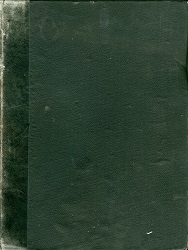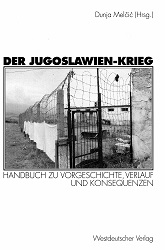
We kindly inform you that, as long as the subject affiliation of our 300.000+ articles is in progress, you might get unsufficient or no results on your third level or second level search. In this case, please broaden your search criteria.







8.1 The origin of the Albanians 8.2. Middle Ages 8.3. From the Ottoman Empire to the Serbian occupation 8.4. Under Serbian Supremacy 8.5. Incomplete equality in the federation and loss of autonomy 8.6. repression and resistance
More...
9.1. Middle Ages 9.2. Under Ottoman rule 9.3. In the twentieth century 9.4. State Independence
More...
10.1. Prehistory and founding of the state 10.2. The »Kingdom of the Serbs, Croats and Slovenes« 10.3. The royal dictatorship 10.4. The downfall
More...
11.1. Course and actors 11.1.1. Conquest and division 11.1.2. The Independent State of Croatia (NDH) 11.1.3. The Chetniks 11.1.4. The Partisans 11.1.5. War of Liberation and Civil War 11.1.6. Allied policy 11.2. Casualties
More...
12.1. Basics developed during the Second World War 12.2. The time of "administrative socialism" 12.3. The break with the Soviet Union 12.4. The expansion of self-management socialism 12.5. Yugoslavia (not) a special way to socialism
More...
13.1. On the way to liberalization 13.2. The new constitution 13.3. Yugoslavia without Tito
More...
14.1. Illyrianism and its limits 14.2. Yugoslavism between Greater Serbism and renewed Illyrianism 14.3. Political Yugoslavism 14.4. The First Yugoslavia: Unitarian State and Federal Counter-Movement 14.5. The Second Yugoslavia: Federal Claims and Unitarian Tendencies 14.6. Discussions about the breakup of Yugoslavia
More...
15.1.1. Up to the founding of the state in 1918 15.1.1. Beginnings of Christianity 15.1.2. Croatia and Bosnia in the Middle Ages 15.1.3. The Reformation in the South Slavs 15.1.4 The Eastern Churches 15.1.5. The Ottoman Conquest and Islam 15.1.6. The Catholic Territories in the Baroque, Enlightenment and Nineteenth Century 15.2. Nach der Gründung Jugoslawiens 1918 15.2.1. Die orthodoxen Kirchen 15.2.2. Die katholische Kirche 15.2.3. Der Islam 15.2.4. Die übrigen Religionsgemeinschaften 15.2.5. Ökumenische Beziehungen und die Kriege der neunziger Jahre
More...
16.1. Dynamic diversity 16.2. The dialects 16.3. The minority languages 16.4. Linguistic-historical processes
More...

18.1. Literature and »national consciousness« 18.2. Delimitations and border crossings 18.3. The ideology of »Yugoslavism« 18.4. Brief overview of the individual national literatures
More...
19.1. The political imaginary of Croatian national history 19.2. On the history of Bosniak mythology 19.3. The Sarajevo Paradoxon
More...
Mass Media in the Service of Ideological Consensus 20.2. The structural change of the Slovenian public 20.3. The »freedom of the press« in Serbia 20.4. The beginning of pluralism in Croatia and its dangers 20.5. Notes on other media landscapes
More...
21.1. Accession to power and turn to nationalism 21.2. From the destruction of provincial autonomy to aggression against the northern republics 21.3. From the conquests in Bosnia to the defeat in Kosovo
More...